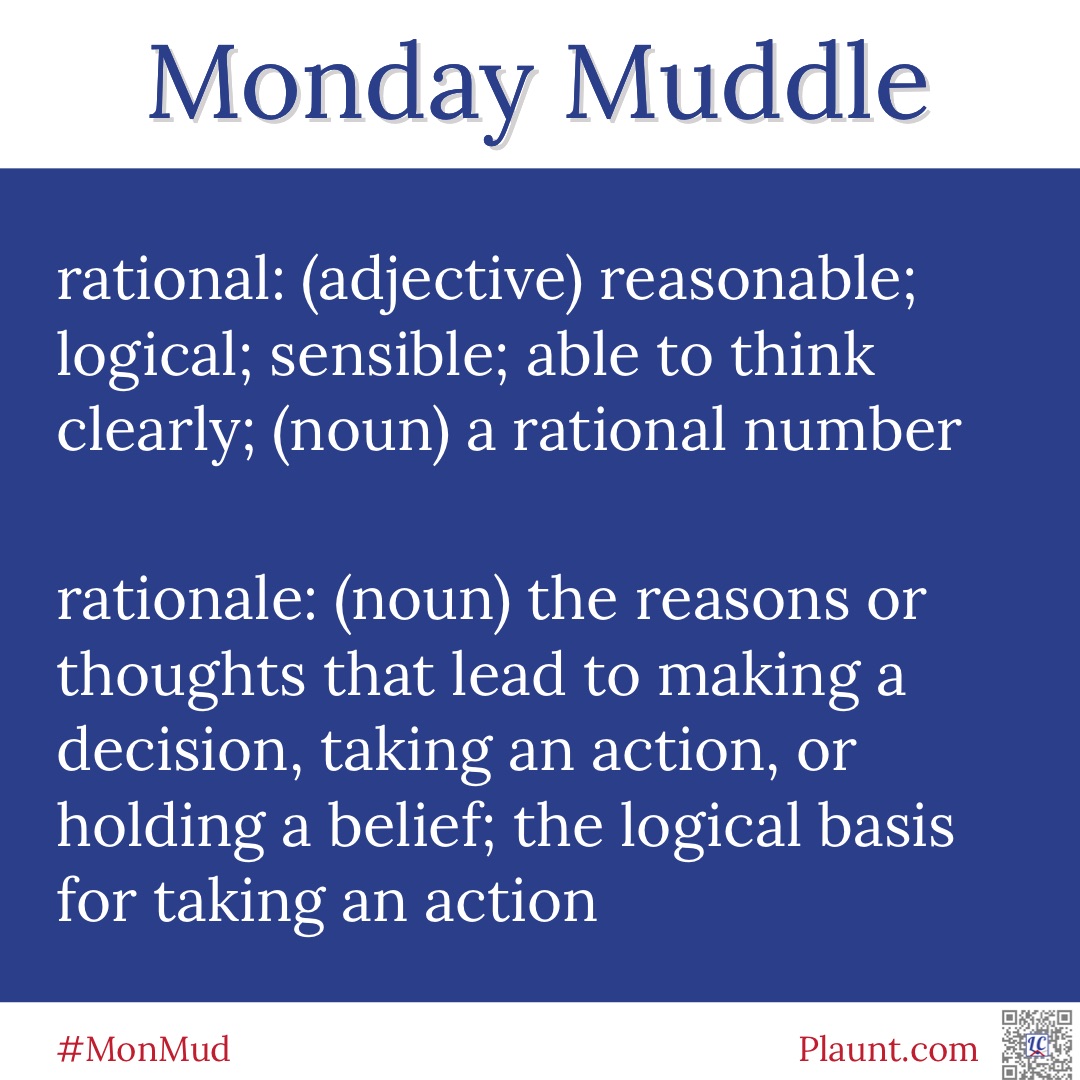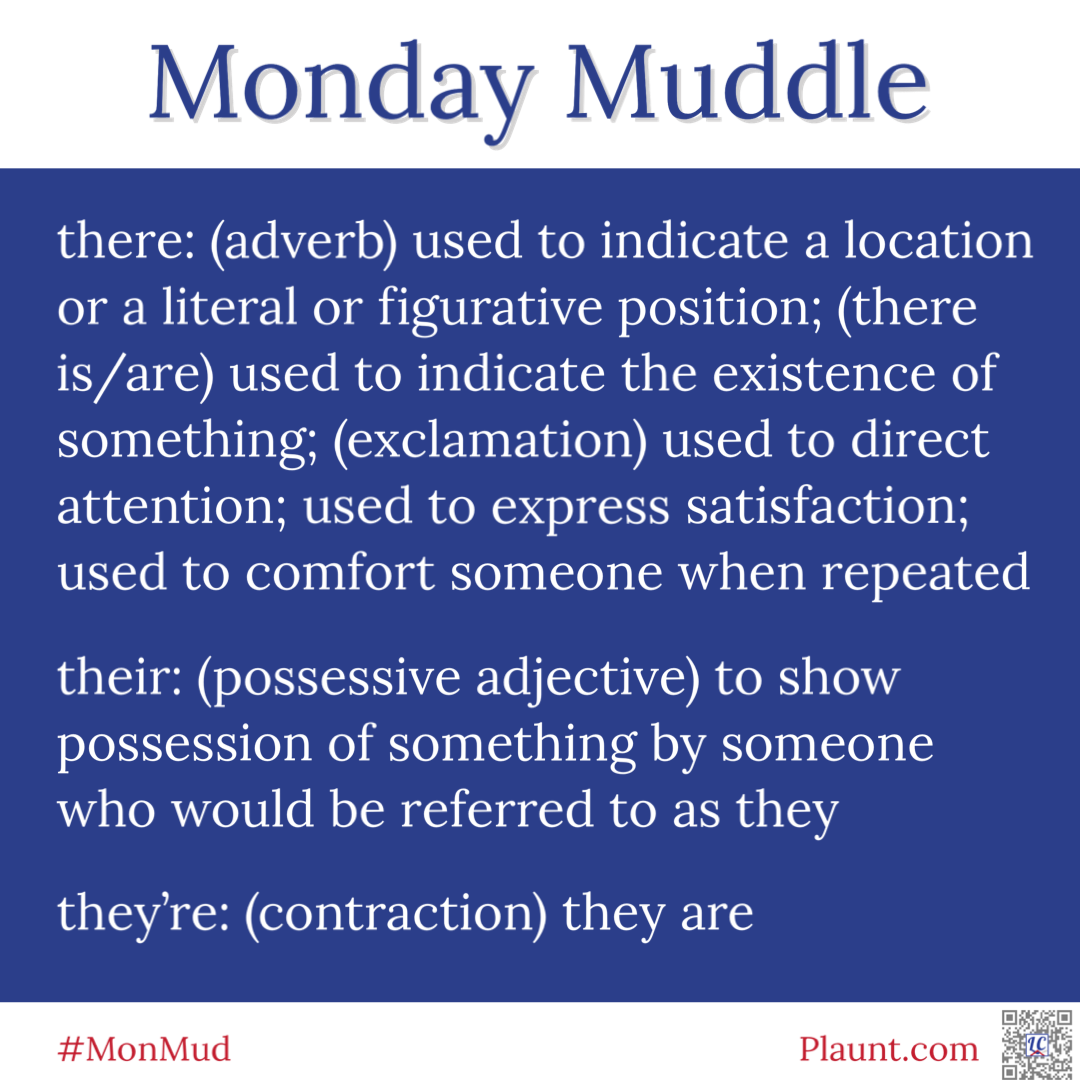
Monday Muddle: there, their, they’re


By far the most common uses of affect and effect are affect as a verb and effect as a noun. The memory trick I use to help keep them straight is that affect is an action and starts with A. A is for action. Effect is a consequence or end result. E is for end. And if you have trouble remembering which is which, I would recommend trying to avoid the less common versions.
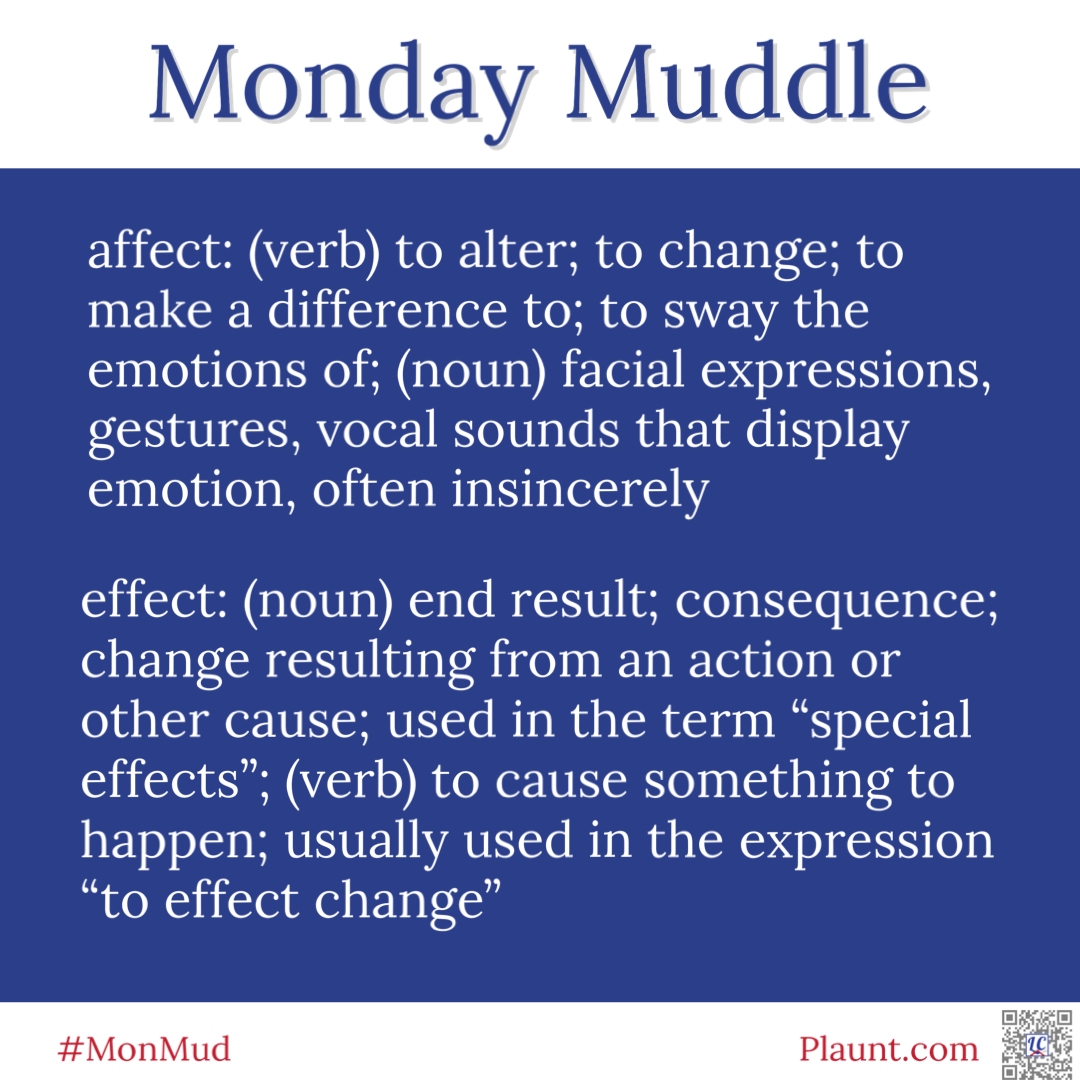
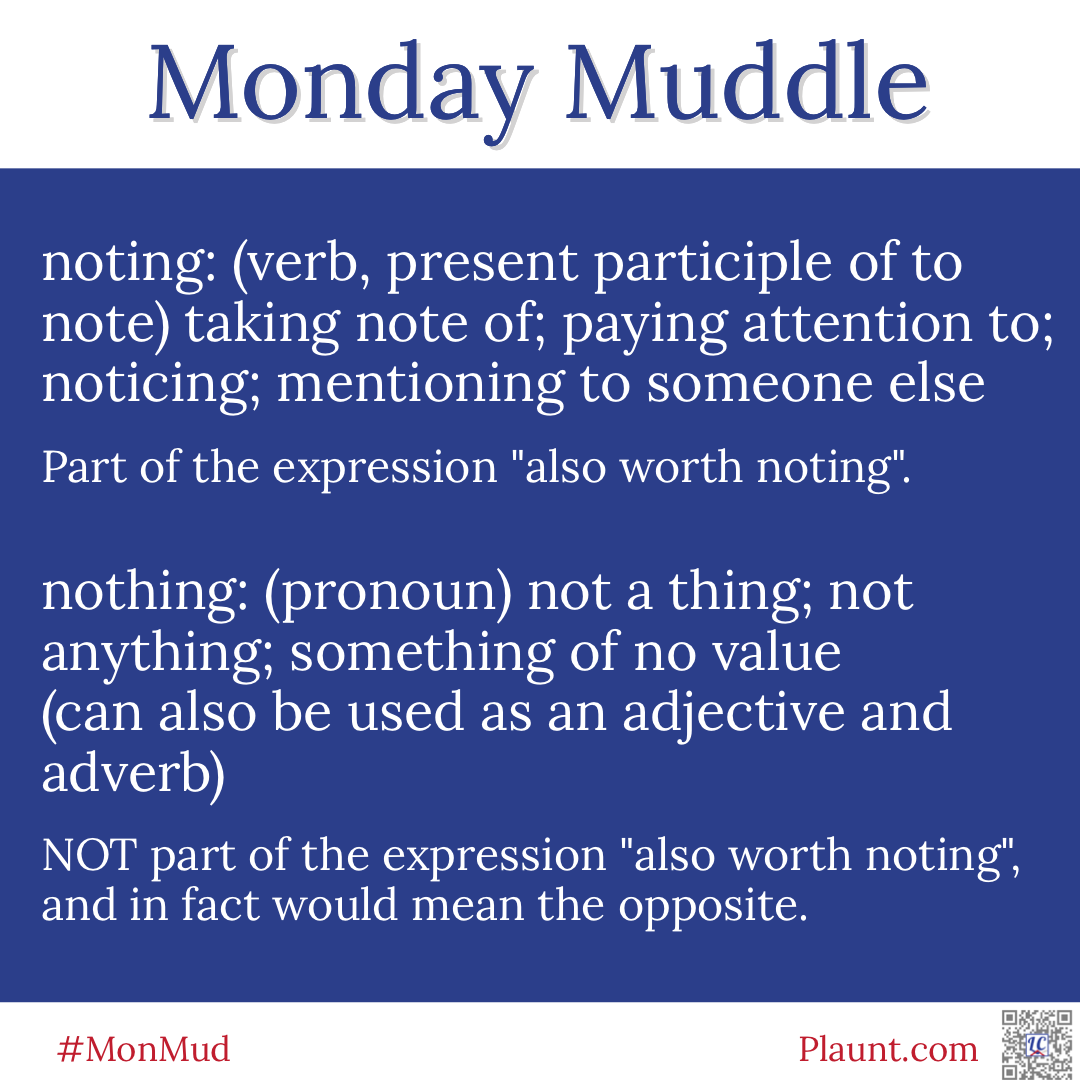
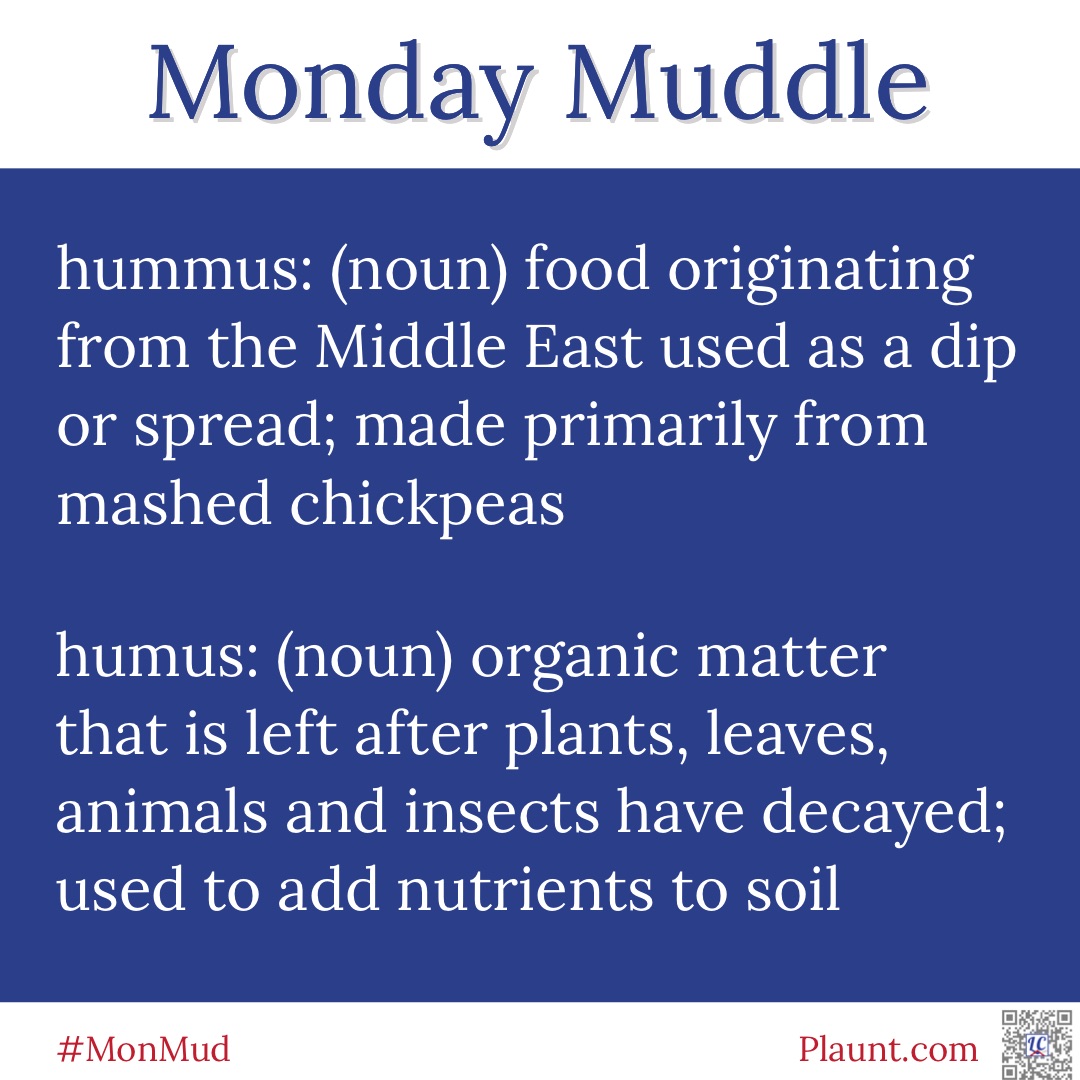
I enjoy hummus on pita bread. I don’t think I would like humus on pita bread. 😳
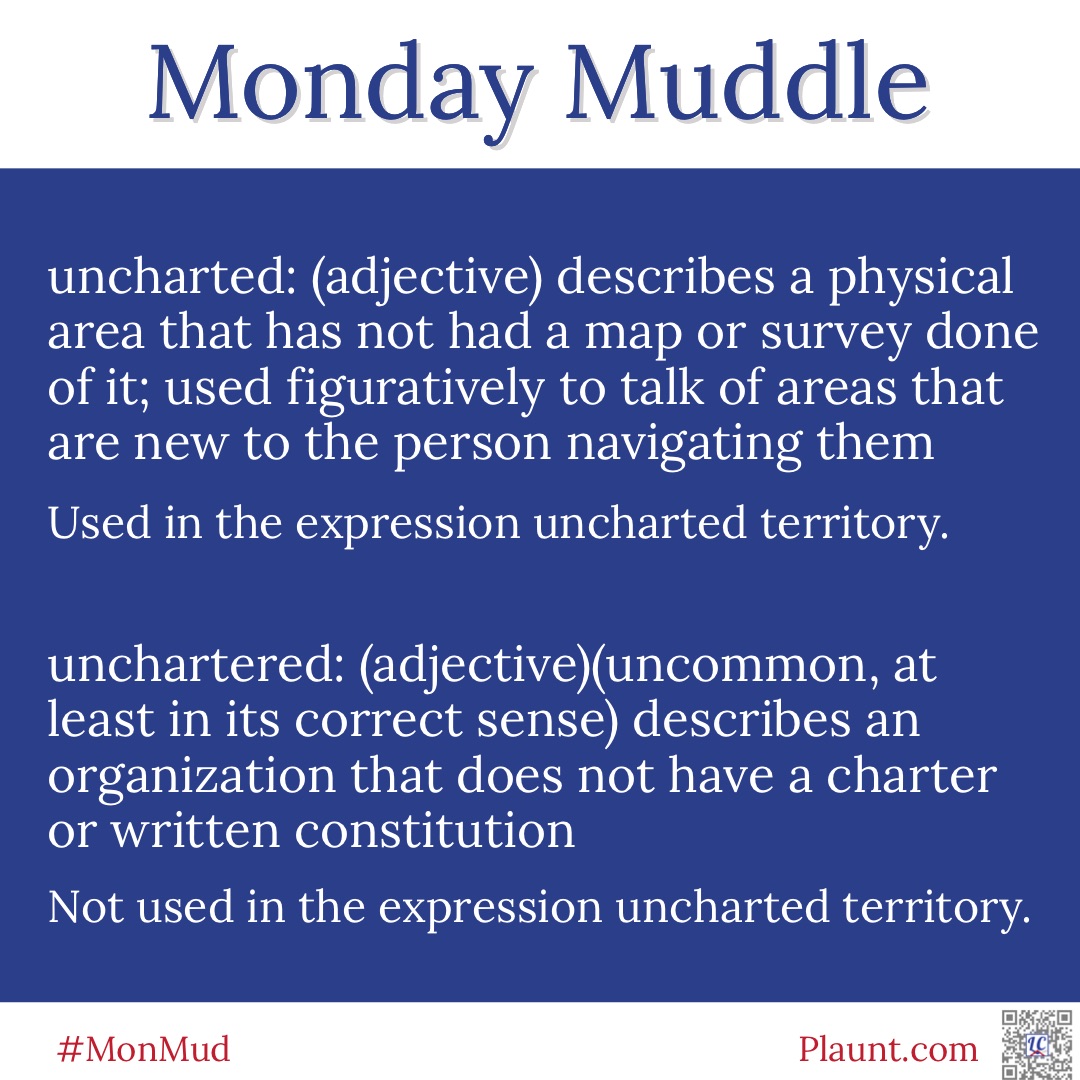
Chartered (adjective) can mean to have a charter or constitution, but it can also be used to describe a vehicle that has been rented, usually with the driver, for private tours.
The other day a friend asked me how long Gilligan’s trip was supposed to be. If you have no idea what I’m talking about, it’s okay; it just means you are young. (But if you ever need the answer for a trivia competition, it was a three hour tour.) Gilligan was working on a boat that was chartered. They may have ended up in uncharted waters, but because they were there, they were not unchartered waters.
To fear better is not the same as to fare better.
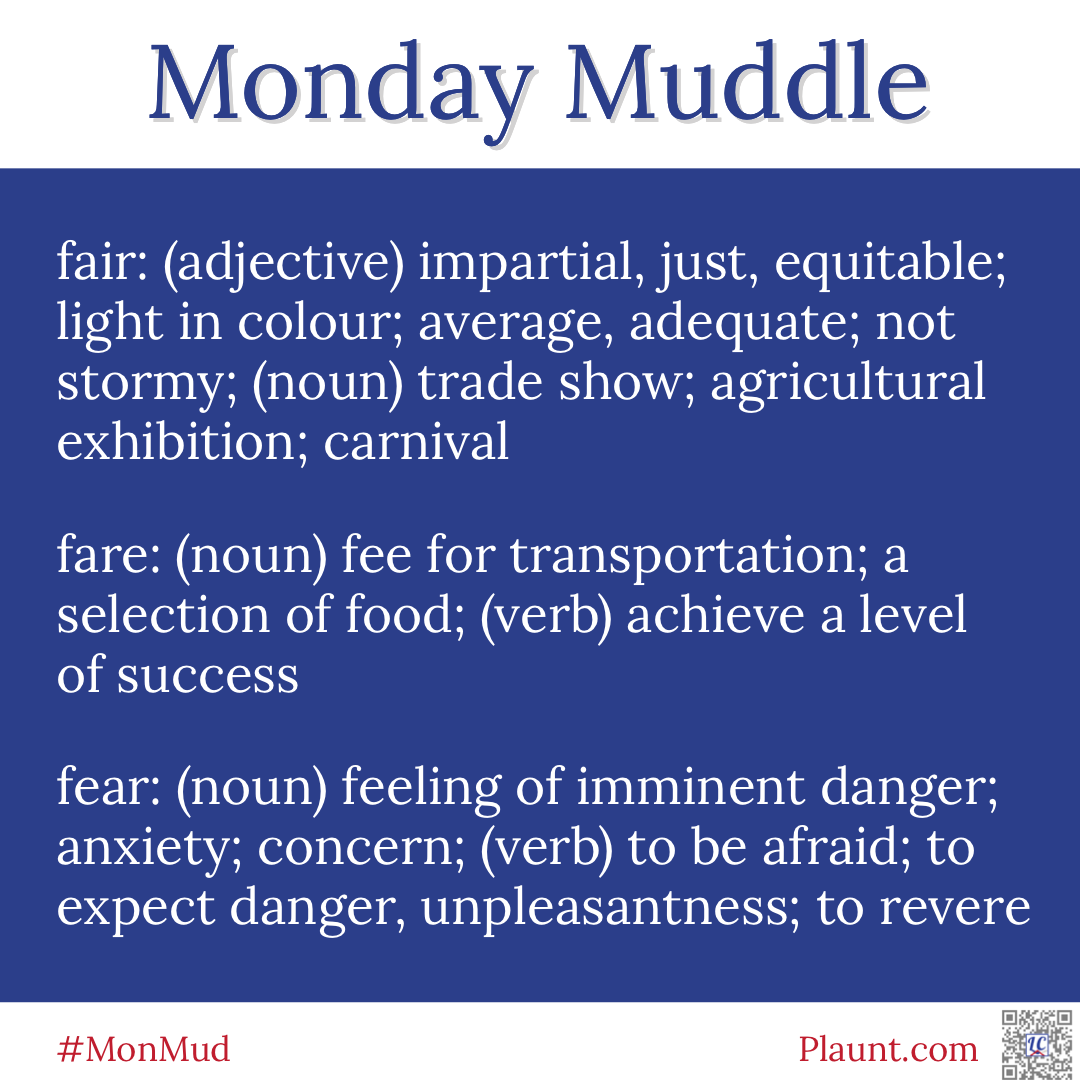
A comparative adjective (worse) is used when you are comparing two things. A superlative adjective is used when you are comparing three or more things. Unless you are comparing sausage, and then you may need to use “wurst”.
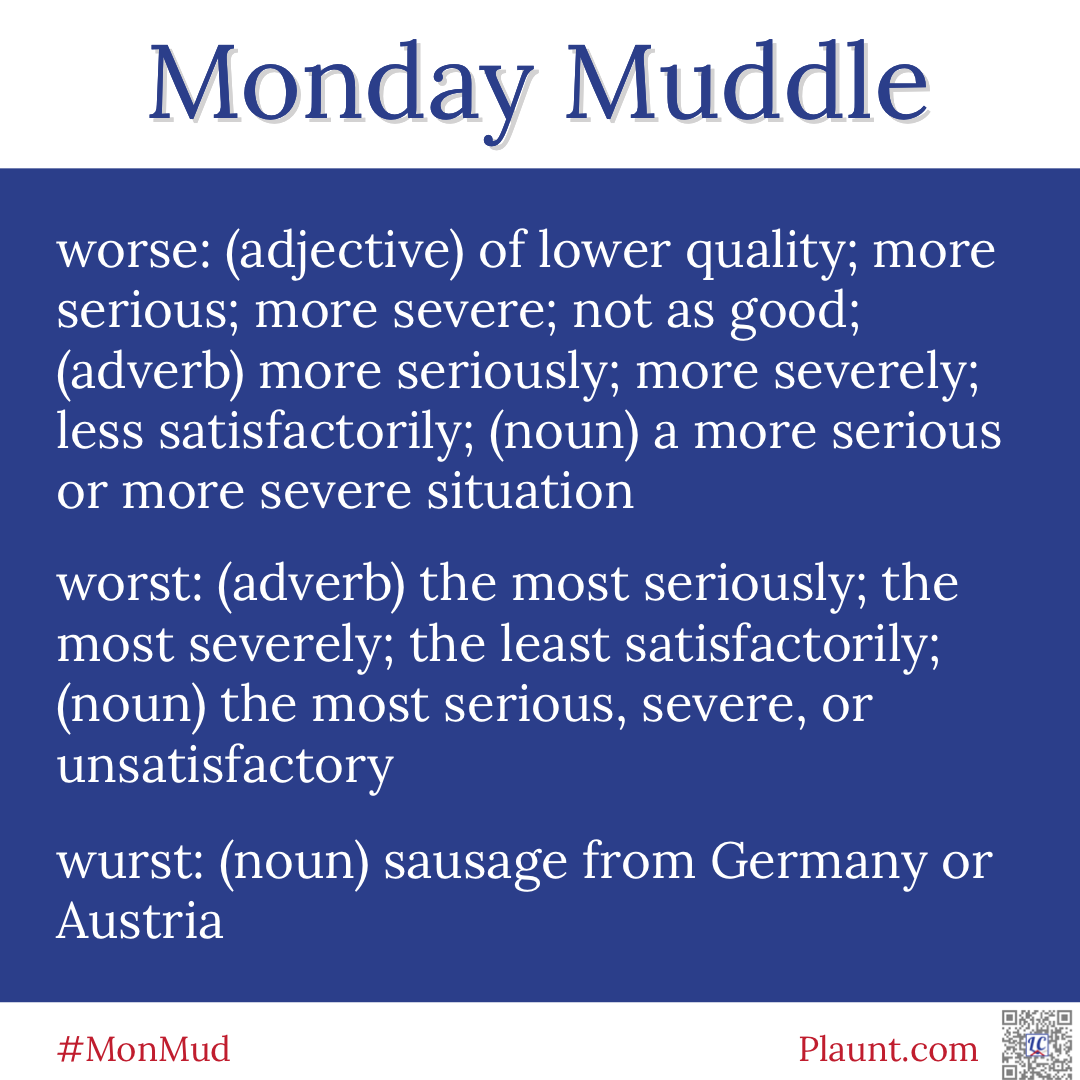
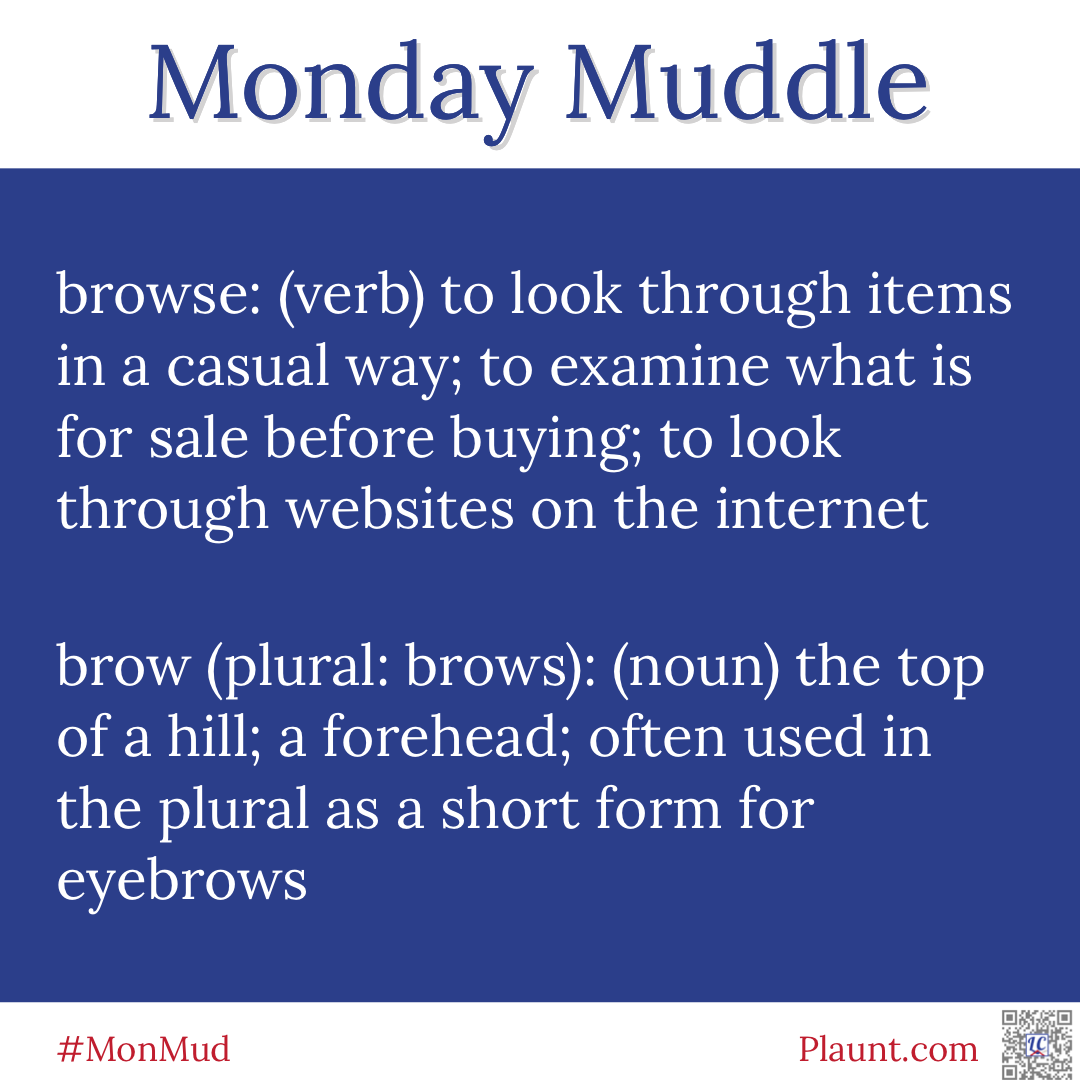
A couple important points to remember:
You probably wouldn’t stalk shelves.
A laughing stalk is probably some kind of character in an animated feature. A laughingstock is a person, or thing, that is being ridiculed or mocked.
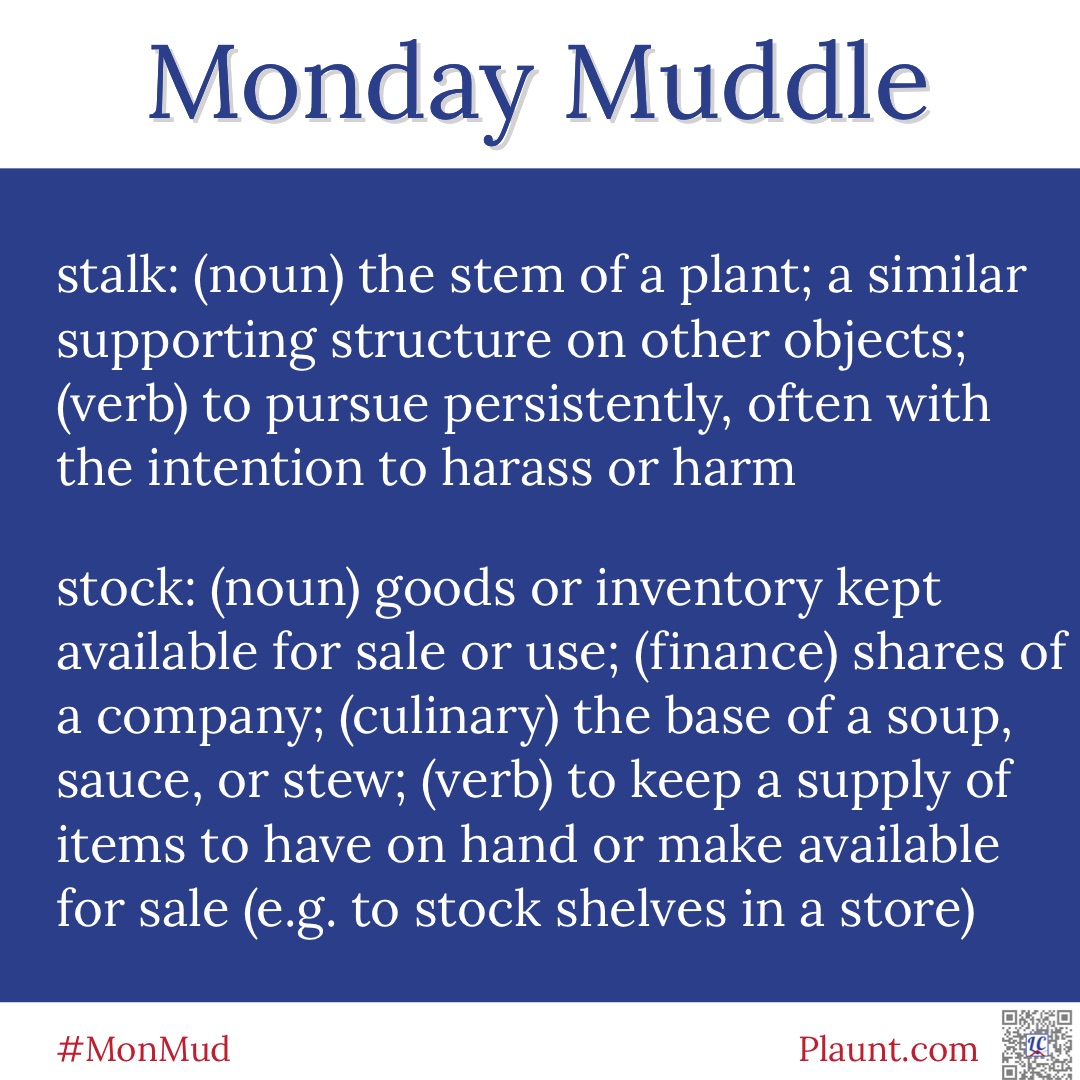
“What is the rational?” does not mean the same thing as “What is the rationale?”
